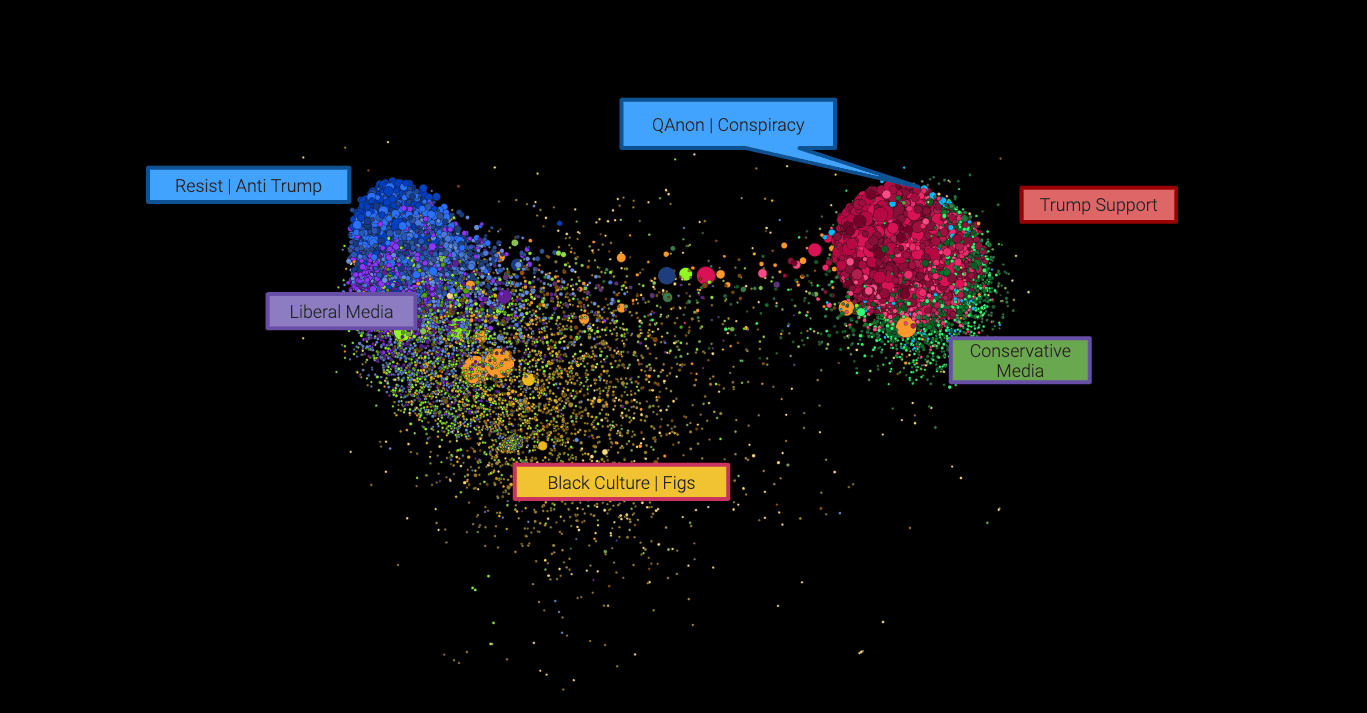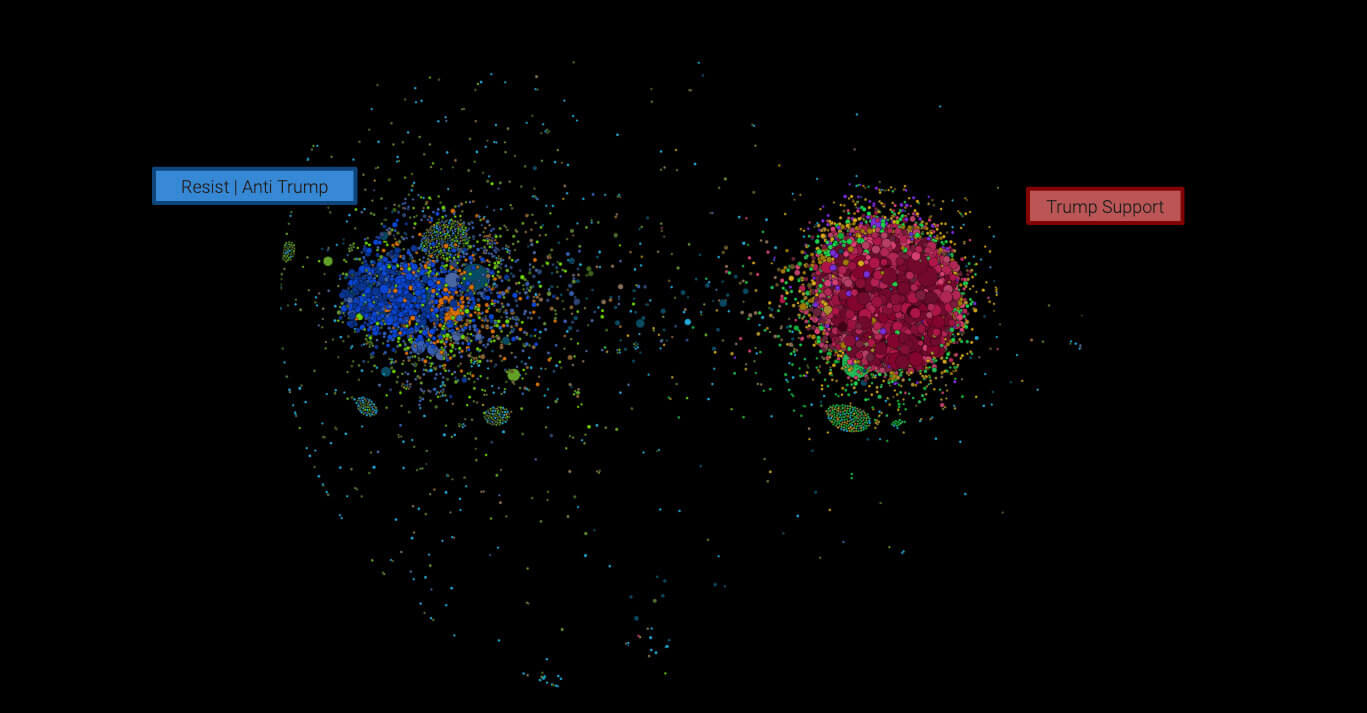


Crisis Management & Disinformation Detection
Sports
Graphika analyzes viral events, crises and trends to determine the source, presence of coordination, and granular insights about the conversation.
-
Challenge
On August 14, 2016, NFL quarterback Colin Kaepernick remained seated during the national anthem in protest of the oppression of black people in the US.
Donald Trump, then running for president, said, “I think it's a terrible thing, and you know, maybe he should find a country that works better for him."
Pro-Trump accounts on Twitter helped to drive a campaign to boycott Nike once it named Kaepernick as the face of its Just Do It advertising campaign.
Graphika set out to determine the origins of and influential groups driving the Nike boycott conversation.
-
Program
Graphika conducted two separate analyses of hashtags being used on Twitter.
47 hashtags within our first Twitter map mentioned either Nike or Kaepernick.
Our first scan, after Nike named Kaepernick as the face of its new advert on September 3, found around 7,000 to 8,000 accounts using the initial hashtags calling for a boycott of Nike.
12-18 hours later, a second scan surfaced more than 80,000 different Twitter accounts that had tweeted with the hashtags, so we focussed our analysis on accounts that used the hashtags more than once.

-
Outcome
From our analysis, Graphika determined:
Russian Twitter accounts targeted the Nike boycott but did not create it. They participated in the Nike hashtag and in particular, drove it at the beginning.
The boycott was largely pushed by Trump’s online supporters, with 66.1% of #nikeboycott hashtags used by pro-Trump accounts and 58 per cent of #boycottnike uses.
Once momentum had been gained, accounts densely connected to the Internet Research Agency and Russia's ongoing disinformation campaigns helped to amplify anti-Nike sentiment.
Politically divisive issues like the Nike Boycott provide the battlefield for this kind of information warfare around the world.
For more on this story, visit Wired (https://www.wired.co.uk/article/nike-boycott-colin-kaepernick-russia-twitter)
The Best of Graphika in Your Inbox.
Sign up for updates via our email newsletter